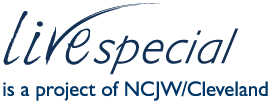Options for College Success
our philosophy
We are an organization run entirely by neurodivergent staff. We believe in creating a future that accepts developmental disabilities as natural, neurological variations that have unique strengths and weaknesses. In other words, we believe in a neurodiverse future.
A neurodiverse future requires unlearning many misconceptions we have about developmentally disabled people and the world around us. At Options, we believe in the social model of disability. The social model of disability says that people are debilitated by societal barriers, systemic discrimination, and societal exclusion—not by their differences.
Developmentally disabled adults need instructors and employers who accommodate their needs. Developmentally disabled adults need greater social inclusion in their communities. Developmentally disabled adults need media that represent their perspectives. Developmentally disabled adults need easier access to better social services and community supports. Developmentally disabled adults need to be seen and understood. Developmentally disabled adults need a space to explore and accept their identity. Developmentally disabled adults need safe spaces to develop radical self-love.
Until our society is able to meet the needs of developmentally disabled adults, we will provide language that enables developmentally disabled adults to advocate for themselves. We will teach skills and provide resources that help developmentally disabled adults manage their disabilities. We will provide a space for developmentally disabled adults to recognize their unique strengths, and celebrate their successes. We will also connect developmentally disabled adults to additional community-based resources when they need greater support.
our approach
We believe in a neurodiverse future that values the unique strengths and perspectives of all neurotypes. Because our practices are grounded in neurodiversity, we do not view “functioning” as a binary continuum and do not use functioning labels to describe our participants in our own work. We view functioning as a broad spectrum that includes many areas of cognitive, emotional, and physical abilities. By viewing functioning in this way, we can accurately assess what skills our participants already have and can fall back on, and which areas they may want more support in. We call this a “strengths-based” approach.
We recognize that everyone, regardless of neurotype, has unique needs, preferences, and learning styles. We honor these differences in creating individualized service plans that directly address the goals and preferences of the participant. We give participants the language to talk about their neurotypes and communication styles, so they can better communicate their needs to others. We allow our participants to reflect on how they best process and communicate information, and we tailor their individual services around those needs. Instead of taking a behavioral approach, which often punishes harmless behaviors outside the norm, we ask, “what purpose does this behavior serve?” and teach different communication strategies only when those strategies better meet our participants’ goals or reduce harm. We do not use conditioning to enforce these skills.
One of our favorite mottos is, “We’re all adults here.” We treat our participants as the primary stakeholders and equal collaborators in developing their own care plans. We support them in adjusting to the responsibilities that accompany greater autonomy over their personal, academic, and professional lives. We also act as figures outside the family who can keep them accountable to the goals they set in their care plan.
We always assume competence with our participants—it is our job to help our participants identify barriers and create the accommodations they need in order to meet their own goals. We view our participants as the foremost experts on their own needs and experiences. We encourage our participants to communicate these needs and experiences to us.
One of our other favorite mottos is, “It takes a village.” A lack of support system can contribute to the poor outcomes the developmentally disabled community often experiences. At Options, we create a space for our participants to develop their own support systems. We build social inclusion through our extensive social programming. We teach our participants that communities are interdependent networks of care and support, and that goes both ways. We encourage our participants to give back to the local community when possible.

